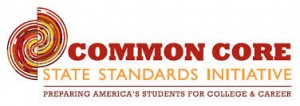Mention the words “Common Core” in any crowd, and you are sure to get a reaction.
Common Core is the federal government’s plan to try to bring “the same standard” to every K-12 public school in the United States. Through the Common Core, the federal government has imposed a single teaching plan on 15,000 school districts across the country, with principles of equity at the center of its implementation.
But is the initiative really about equitable outcomes?
Parents, students and teachers are frustrated and are calling for the suspension of Common Core.
Politics trumps education
Common Core has been implemented so aggressively because is it has been pursued politically, not educationally, National Review Online reported recently. “Whatever the technical merits of the standards themselves, the timeline for adoption and implementation has been driven by the Obama administration’s Race to the Top program and its approach to No Child Left Behind waivers,” said NRO. “Nearly all the states committed to a federal timeline in order to compete for federal Race to the Top funds and to get out from under NCLB’s most onerous provisions.”
Suspend Common Core
Common Core State Standards for English Language Arts and Mathematics need revision and the opportunity for a test run. Pilot programs are needed prior to any further implementation, well before tests based on these unproven standards are given.
Sen. Mark Wyland, R-Escondido, has authored Senate Bill 1016 which would halt the $1.25 billion in state spending on the Common Core program in California, reapportion the remaining funding, and allocate $50 million to establish pilot programs in urban, suburban and rural school districts throughout the state. I am working with Wyland until the end of the year doing research and writing, and appreciate his understanding and interpretation of the Common Core.
Under Wyland’s bill, the school districts, in consultation with parental organizations, will develop pilot programs. Every 6 months these pilot programs will be reviewed by the district and the parental organizations. And, the State Department of Education will review these pilot programs and make their revisions available to the public.
Not ready for prime time
No Child Left Behind programs, tied to students’ performance on federally approved tests, did very little to develop broader reasoning skills, nor did it close the “achievement gap” between whites and minorities, as promised. But rather than improve the existing No Child Left Behind programs, a small, hand-selected group of educators was convened to work on developing the new Common Core standards by the National Governors Association and the Council of Chief State School Officers.
While many of the Common Core Standards are good, the Common Core is not ready for implementation. Under the Common Core, test scores are expected to decline. This has parents and students upset, and teachers bearing the brunt of dealing with the frustration and anger.
Throw the baby out…
The point of the creation of the Common Core was to obtain some degree of uniformity throughout the country. However, we are far from it.
Each school district currently has the task of developing actual curriculum and teaching approaches, as well as evaluation. This includes ordinary classroom tests, and homework, but does not include the assessment test.
This approach has led to chaos. No school district knows really what others are doing. But the Common Core is a throw-the-baby-out-with-the-bath-water approach.
The obvious solution is to do pilot programs to develop textbooks, materials and curriculum, as well as evaluation methods, and perform teacher training.
Among other challenges, the Common Core changes from the current educational standards are quite dramatic.
Teachers unions calling for suspension
Though 45 states have already adopted Common Core standards since 2010, not all are happy with early results. Teacher training in the Common Core has been woefully insufficient across the country. Most teachers are not prepared even in college to teach this approach.
The 600,000 member teachers union in New York recently called for the suspension of the Common Core because there has been inadequate training and preparation for teachers. The union called for Common Core implementation to be suspended for three years, including the new standardized testing. Shortly thereafter, the Democratically-controlled New York state Assembly voted to suspend implementation of Common Core.
More than 20 states are battling Common Core, and pushing for suspension.
Even the American Federation of Teachers President Randi Weingarten has concerns with Common Core implementation, and says she agrees with the New York union’s resolution. During a recent interview with MSNBC, Weingarten said the Common Core standards should be a guide, not a straitjacket.
Issues with Common Core
Common Core awards students for reasoning, while minimizing correct answers.
The Common Core is largely about skill development, which is difficult to measure. Additionally, skills-training does not prepare students for college-level work.
Common Core’s English Language Arts standards and literacy standards do not specify literary or historical knowledge.
And, Common Core critics say the program does not adequately prepare students for college science, technology, engineering, and mathematics.
Practical application
The Common Core should be suspended while pilot programs are created and implemented.
A pilot program would identify the weaknesses in the Common Core, and specify how to improve these areas. Baby steps are needed with such a significant shift in educational standards, if we expect improvement in public education.


